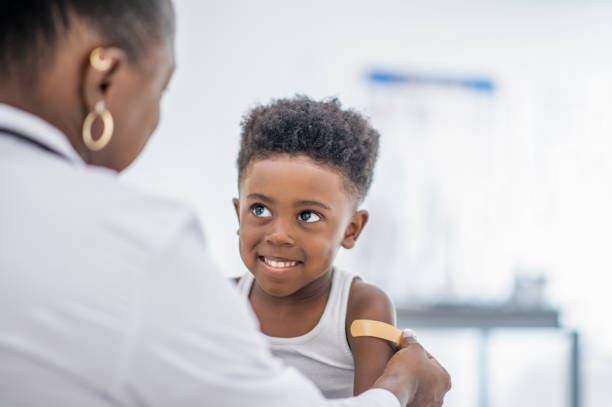
The new bivalent COVID-19 booster is now approved for children as young as 5 years old, the U.S. Food and Drug Administration announced Wednesday.
The bivalent booster shot includes one part that protects against the original strain of the COVID-19 coronavirus, and another part that targets the highly transmissible Omicron strain.
Moderna's bivalent vaccine is authorized for children down to 6 years old, while Pfizer-BioNTech's vaccine is approved for children as young as 5.
In both cases, the booster shot should be given at least two months after children have either finished the primary series of two shots or have gotten a booster shot.
"Vaccination remains the most effective measure to prevent the severe consequences of COVID-19, including hospitalization and death," Dr. Peter Marks, director of the FDA's Center for Biologics Evaluation and Research, said in an FDA news release.
RELATED: Parents: What You Need to Know About Kids & COVID-19
"While it has largely been the case that COVID-19 tends to be less severe in children than adults, as the various waves of COVID-19 have occurred, more children have gotten sick with the disease and have been hospitalized," Marks added.
"Children may also experience long-term effects, even following initially mild disease. We encourage parents to consider primary vaccination for children and follow up with an updated booster dose when eligible," he said.
The FDA's authorization is based on immune response and safety data gathered during a clinical trial of the bivalent vaccine in adults, as well as data from trials of earlier COVID vaccines in children, the agency said.
The updated boosters are "extremely important" for keeping kids healthy and in school, says Dr. Jason Newland, a pediatric infectious disease specialist at Washington University in St. Louis.
So how much protection does an updated COVID-19 booster shot offer? There isn't a clear answer yet, however, Pfizer and Moderna are starting studies on young children.
"It's clearly a better vaccine, an important upgrade from what we had before," White House COVID-19 coordinator Dr. Ashish Jha said earlier this week.
Jha urged adults to get their updated shot in October — like they get flu vaccinations — or at least well before holiday gatherings with high-risk family and friends. If you've recently had COVID-19, you still need the booster but can wait about three months, he adds.
Parents should know "there is no concern from the safety perspective with the bivalent vaccines, whether Moderna or Pfizer," Newland adds.
The protective measures you choose to make for your child are up to you. You should feel free to make the best choice for your child based on their symptoms and circumstances.
For more information about COVID vaccines for children, click here.








